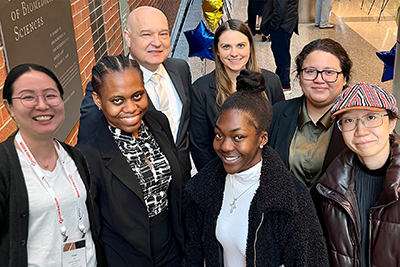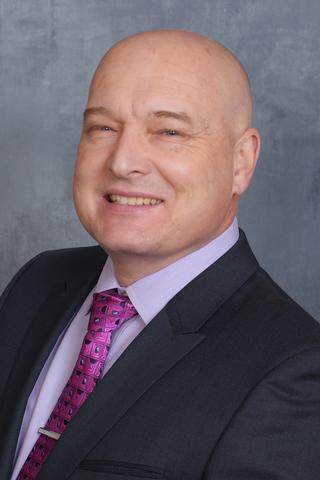
Eliseev Lab
Welcome to the Eliseev Lab

The main goal of our research efforts is to understand how cell metabolism determines cell fate and how it can be manipulated for the purposes of prevention and therapies. Mitochondria are “powerhouses” of the cell and also important components of cell signaling. In undifferentiated stem cells mitochondria are inactive but become activated during the process of differentiation. We focus on the mechanism of this metabolic switch in mesenchymal stem cells (MSC), common precursors of osteoblasts, chondrocytes, and adipocytes. Our data and the literature indicate that activation of mitochondria is especially important for osteogenic differentiation of MSCs; and disruption of mitochondrial function in MSCs decreases osteogenic potential of these cells. Therefore, understanding the mechanism regulating mitochondrial function in MSCs and finding ways to improve and protect mitochondrial function in MSCs may lead to development of new strategies to improve bone health. While studying MSC function in aged mice showing osteoporosis, we have found that mitochondria in these MSCs are less functional due to the mitochondrial permeability transition (MPT), a non-selective mitochondrial pore regulated by cyclophilin D (CypD). Importantly, CypD knockout mice, a loss-of-function model of the MPT, have more viable and more potent MSCs, less osteoporosis and stronger bones even when they are aged. These data suggest that CypD can be an important target to treat aging-related osteoporosis and delayed fracture healing.
 In addition, we study how cell metabolism regulates sensitivity of osteosarcoma to treatments. Osteosarcoma is the most frequent primary bone cancer affecting mostly children and young adults. It is notoriously resistant to radiation and easily spreads to the lung where it becomes practically incurable. Similarly to undifferentiated stem cells, many cancer cells show preference for glycolytic over mitochondrial metabolism even in the presence of adequate oxygen, a phenomenon known as the Warburg effect. Our data indicate that the Warburg effect is especially pronounced in osteosarcoma cancer stem cells (CSC), and reversal of this effect makes CSCs less viable and more sensitive to radiation.
In addition, we study how cell metabolism regulates sensitivity of osteosarcoma to treatments. Osteosarcoma is the most frequent primary bone cancer affecting mostly children and young adults. It is notoriously resistant to radiation and easily spreads to the lung where it becomes practically incurable. Similarly to undifferentiated stem cells, many cancer cells show preference for glycolytic over mitochondrial metabolism even in the presence of adequate oxygen, a phenomenon known as the Warburg effect. Our data indicate that the Warburg effect is especially pronounced in osteosarcoma cancer stem cells (CSC), and reversal of this effect makes CSCs less viable and more sensitive to radiation.
The Eliseev Lab is currently recruiting Graduate Students.

Roman A. Eliseev, M.D., Ph.D.
Principal Investigator
Publications
- Energy metabolism in osteoprogenitors and osteoblasts: role of the Pentose Phosphate Pathway.; The Journal of biological chemistry. 2024 Nov 26.
- Cyclophilin D, regulator of the mitochondrial permeability transition, impacts bone development and fracture repair.; Bone. 2024 Sep 18.
- Mitochondrial Genetics and Function as Determinants of Bone Phenotype and Aging.; Current osteoporosis reports. 2023 Aug 05.
- Efferocytosis by bone marrow mesenchymal stromal cells disrupts osteoblastic differentiation via mitochondrial remodeling.; Cell death & disease; Vol 14(7), pp. 428. 2023 Jul 14.
- Mitochondrial Transfer to Host Cells from Ex Vivo Expanded Donor Hematopoietic Stem Cells.; Cells; Vol 12(11). 2023 May 25.
- ROLE OF THE MITOCHONDRIAL PERMEABILITY TRANSITION IN BONE METABOLISM AND AGING.; Journal of bone and mineral research : the official journal of the American Society for Bone and Mineral Research. 2023 Feb 13.
Contact Us
Eliseev Lab
SMD 1-8541
601 Elmwood Ave
Rochester, NY 14642
(585) 275-1121